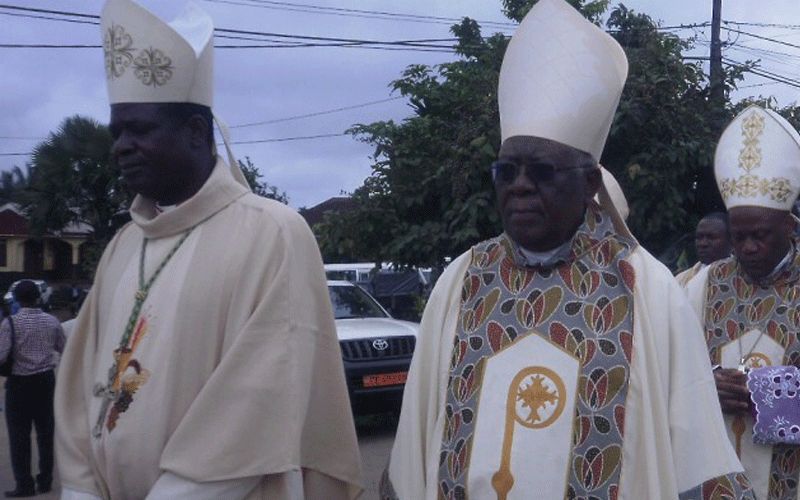Against the backdrop of a controversy on Social Media regarding the decision, some reading malice in Archbishop Kleda’s decree and a culmination of a possible rift between the two Cameroonian Prelates, ACI Africa reached out to the Church leaders for comment.
Cardinal Tumi underlined the important role Archbishop Kleda has to play as the pastor of the Archdiocese of Douala.
“Since November 17, 2009, Pope Emeritus Benedict XVI accepted my request to hand over the pastoral government of the Archdiocese of Douala to someone else. And that person is Archbishop Samuel Kleda. Since that day, he has indeed been my successor,” Cardinal Tumi said.
“That is why during Masses, during the Eucharistic prayer since November 18, 2009, when the celebrating priest says “let us pray for our bishop,” his name is mentioned with mine. His name is pronounced first and then mine in the following manner: “Our Archbishop Samuel Kleda and our Archbishop Emeritus Christian,” the 89-year-old Cardinal added.
He termed the practice “a privilege that the Holy See granted me without me having to ask for it” and added referencing his successor, “If the Archbishop has decided to put an end to this privilege, it is his right and I respect it.”
Cardinal Tumi has been discreet since his resignation as the Local Ordinary of Douala in 2009, a responsibility he held since 1991. He was, however, vocal at the beginning of the Anglophone crisis, championing peace campaigns and calling for dialogue in the Central African country.
On his part, Archbishop Kleda did not want to comment further on his decision, referring ACI Africa to his January 22 decree.
Referencing Archbishop Kleda’s decision, Fr. Jean Fotsing, a Canon lawyer based in Douala Archdiocese told ACI Africa that “there is no canonical provision, especially with regard to the general norms organizing the Catholic Church, and especially its Liturgical Celebration that instructs to cite an Archbishop or Bishop Emeritus in a Particular Church.”
“Only the Pope and the Bishop of the Diocese may be cited,” Fr. Fotsing said and noted, “the (main) celebrant may cite a Bishop who is visiting and participating in the Liturgical Celebration.”
The Cameroonian cleric who is also a member of the Ecclesiastical Tribunal in the Archdiocese further explained, “Canon Law makes an Archbishop or Bishop of a particular Diocese responsible and guarantor of the application of the provisions provided for in its Corpus, and specifies that as a Particular Church, each Diocese could have other particular provisions which would govern discipline, organization and a better liturgical celebration.”








